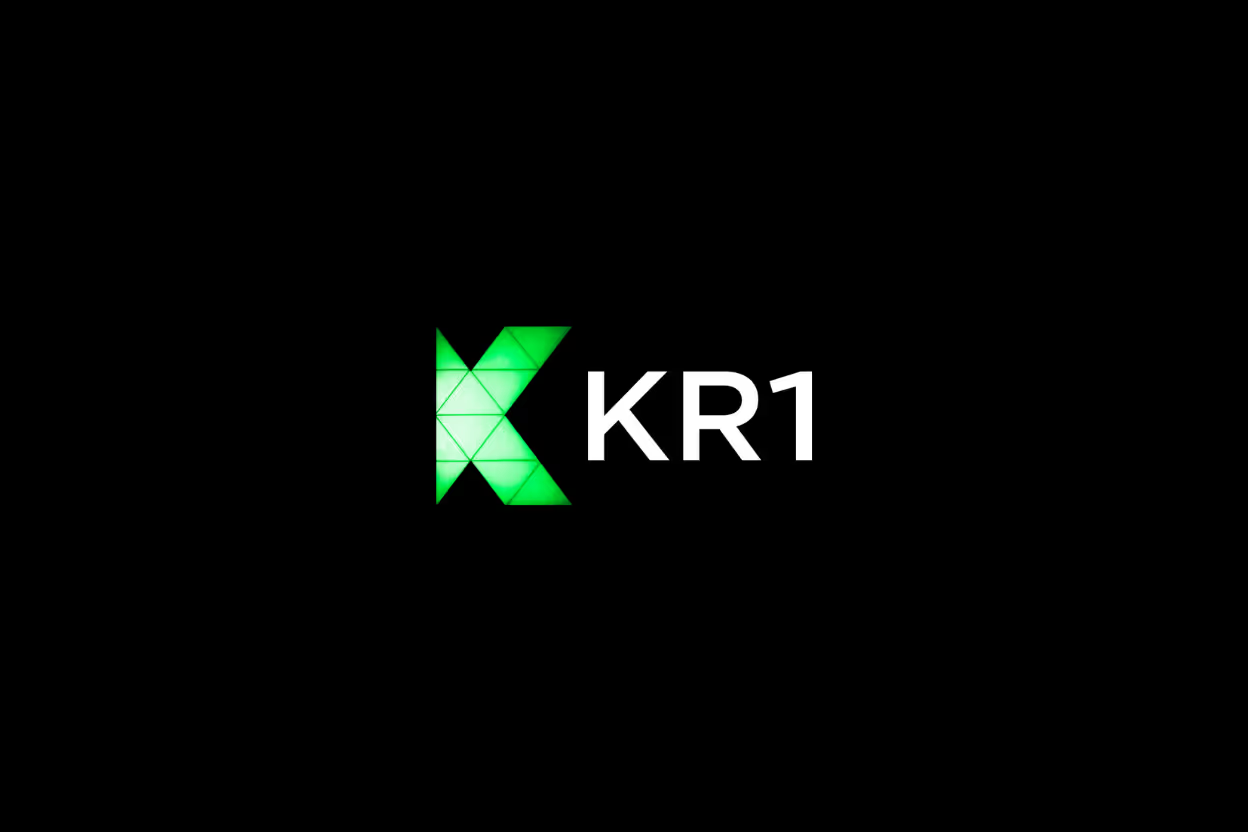Crypto reputation is the sum of credibility, trust, and public sentiment tied to a founder, project, or company in the web3 space. This reputation doesn’t just influence partners and investors, it shapes everything from fundraising to partnerships and user growth. As scams, hacks, and regulatory crackdowns increase, reputation carries more weight than ever before.
Founders and VCs now face a higher bar for trust. A single misstep can impact funding, product adoption, or even legal standing. How does your project’s reputation set you apart from the noise? What are investors really looking for when they assess your track record? In this post, you’ll uncover how your reputation is built, why it’s scrutinized, and what founders can do to protect both their image and the future of their project.
What Does Crypto Reputation Mean?
Crypto reputation isn’t just a buzzword. It describes how others view a founder, project, or organization based on their actions, communication, and trustworthiness in the Web3 space. With anonymous teams and borderless assets, it’s easy to see why trust and credibility matter just as much as technology and innovation.
Reputation can make or break deals, drive investor interest, or stop users from joining a project. It can even define how others treat your company in times of crisis. Why do some projects bounce back from mistakes while others vanish overnight? The answer often lies in reputation.
Core Elements of Crypto Reputation
A strong crypto reputation is built from different signals and behaviors. Think of it as a digital version of street cred, but with higher stakes. Several main factors shape how your reputation is seen.
- Trustworthiness: Does your team honor promises? Are you honest with users and investors?
- Transparency: Is your project open about progress, setbacks, and security practices?
- Track Record: What’s your history with other projects, investments, or token launches?
- Community Feedback: What do users, builders, and partners say about your project online?
- Security and Compliance: Have you faced exploits, hacks, or regulatory trouble, and how did you respond?
Each element plays a role. Ignoring any one of them can quickly erode what took years to build.
Why Does Reputation Matter in Crypto?
Many readers may wonder: Why is reputation such a big deal in crypto? The answer lies in how quickly word spreads, both good and bad. When money moves at the speed of a tweet, trust is often the last line of defense.
In crypto, reputation matters for these reasons:
- Investor Confidence: VCs and angels want to back teams they believe in, not just projects with flashy roadmaps.
- User Growth: People are more likely to join and recommend projects they feel are honest and reliable.
- Partnerships: Big exchanges and other companies look for proof of trust before working together.
- Crisis Survival: Projects with better reputations are more likely to recover from hacks or setbacks.
Have you noticed that some founders attract capital on reputation alone, while others struggle to win trust even with solid products? That’s the power of reputation at work.
How Is Crypto Reputation Measured?
Crypto communities use several methods to measure reputation. While it's not as simple as checking a score, there are some ways to read the room.
- Social Sentiment: Monitoring forums, Telegram groups, and Twitter to see what people say.
- On-chain History: Investors and users look at wallets, past transactions, and smart contract audits for red flags.
- Media Coverage: Frequent negative headlines affect perception and scare away new supporters.
- Peer Endorsements: Recommendations from respected builders and investors can boost your standing in the community.
Is your project showing up in these key spots? Are builders and VCs willing to defend your reputation if things get tough?
A good reputation isn’t built overnight, but losing it can happen in one bad news cycle.
Why Reputation Is Critical for Crypto and Blockchain Projects
A strong reputation sets projects apart in a crowded crypto market. Trust is often the glue that holds teams, users, investors, and partners together. With so much noise and risk in this space, your reputation is often your only moat. It can open doors to capital, spark community growth, or raise red flags that scare everyone away.
Investor and VC Confidence: Show how reputation influences investment decisions and due diligence for VCs. Touch on deal flow, funding rounds, and red flags. Pose: 'What do VCs look for before backing a project?'
Venture capital firms get pitched by crypto projects every week. What makes them pick one over another? It starts with reputation. A solid reputation gives investors the peace of mind that the team is honest and knows how to deliver.
Investors and VCs are drawn to:
- Proven Track Record: Projects with founders who have delivered results in the past tend to get priority for funding. Even a small win can move the needle if it builds trust.
- Clear Communication: VCs look for transparent updates, honest disclosures, and direct answers to tough questions. Dodging these is often a red flag.
- Community Endorsements: Real feedback from users and industry figures helps VCs cut through hype.
- History of Security and Compliance: Avoiding major hacks, scams, or legal trouble can speak volumes.
Before backing a project, VCs often ask themselves:
- Has the team delivered value in the past or are they jumping from hype to hype?
- Does the founder communicate bad news as openly as good news?
- Are users genuinely engaged or is the community only bots and airdrop hunters?
- Are there skeletons in the closet: unpaid contributors, toxic forums, or litigation?
Projects with strong reputations don’t just get funded—they often get better terms and bigger checks. When word spreads that a VC is looking at your deal, other investors tend to follow. In contrast, bad press or community anger can dry up deal flow overnight.
Community and User Growth: Explain how reputation attracts or repels users and community contributors. Cover the role of engagement, support, and real testimonials. Suggest why organic adoption depends on trust.
Your user base is more than a number. Crypto communities move fast and act as both users and brand advocates. Reputation is the magnet that either pulls new people in or pushes them away.
People join and stick with projects that:
- Respond quickly to questions in Telegram or Discord
- Share honest updates, even during setbacks or hacks
- Lift real user stories and testimonials (not just paid endorsements)
- Solve problems instead of ignoring feedback
Organic adoption happens when trust is visible. Users love to talk about products they trust and will bring friends if they feel heard. Founders who ignore their reputation often see fake engagement, short-term hype, and “ghost town” communities.
Ask yourself:
- Are users proud to recommend your project without rewards?
- Do contributors join to help or just to pump and dump?
- Is your support team respected or avoided?
A credible reputation is a long-term engine for growth. If your project leads with trust, people will follow—even in a bear market. If you cut corners or fake progress, the community will notice and move on.
Building and Measuring Crypto Reputation
Building a solid crypto reputation is like planting and nurturing a tree. It needs consistent care, transparency, and proof over time. For founders and VCs, reputation is the foundation that supports every deal, partnership, and user relationship. Without it, your efforts risk falling flat, no matter how impressive your technology or vision might be.
Reputation in crypto isn’t built overnight, nor does it rely solely on flashy announcements or short-term hype. Instead, it grows from steady actions that prove reliability and trustworthiness in an often uncertain environment. Measuring that reputation helps you understand how the community and investors see your project and can guide key decisions about communication, development, and partnerships.
How to Build a Strong Crypto Reputation
Start with these core practices that help you earn and keep trust:
- Be Transparent and Honest: Share both good news and setbacks openly. People value honesty, especially when things don’t go as planned.
- Deliver on Promises: Meeting deadlines and milestones builds credibility. Avoid overpromising just to raise hype.
- Engage Your Community Regularly: Active communication in forums, social channels, and chats shows you listen and care.
- Maintain Security Standards: Regular audits and quick responses to vulnerabilities signal responsibility.
- Create Verifiable Track Records: Show completed projects, successful token launches, or partnerships that demonstrate your ability to execute.
- Encourage Peer Endorsements: Support from respected industry insiders can validate your reputation.
Picture trust as a bank account: each positive action deposits credibility, while mistakes withdraw from it. Without consistent deposits, your reputation balance runs low fast.
Methods to Measure Crypto Reputation
Understanding where you stand helps you plan your next move. These measurements give clues about how your project is perceived:
- Social Listening: Track conversations on Twitter, Telegram, Discord, and crypto forums. Are users positive, neutral, or raising concerns? Are questions answered promptly? Tools and manual checks both help here.
- On-chain Data: Wallet histories, transaction patterns, and audit reports reveal transparency and past behavior. Investors use this to flag suspicious activity or impressive consistency.
- Media and Press Analysis: Look for headlines, articles, and reports—both mainstream and niche crypto outlets. Positive coverage often aligns with higher trust.
- Community Metrics: Check engagement quality — not just numbers but the tone of feedback, how often contributors support the project, and whether influencers or validators endorse it.
- Reputation Scores and Ratings: Some platforms offer reputation indexes based on multiple signals. These are useful but should be taken as a starting point, not the whole story.
Does your project show growth in positive conversations, community trust, and verifiable achievements? If not, which areas need attention?
Key Questions to Track Your Reputation
Ask yourself these regularly to keep your finger on the pulse:
- How do investors and partners describe my project when asked?
- Are community members proud to support and recommend us?
- What kind of feedback appears in public channels? Are concerns resolved quickly?
- Is our team visible and responsive, especially during tough moments?
- Have we maintained a clean security record and provided updates when issues arose?
By building trust steadily and measuring public perception honestly, founders and VCs turn reputation into a powerful asset. It reflects not just what you say, but what you deliver and how you handle challenges.
Managing Reputation Risks and Recovering from Mistakes
Reputation can take years to build and be damaged in moments. In crypto, where trust and transparency make or break projects, managing risks and recovering from mistakes is a nonstop job. It means recognizing vulnerabilities before they turn into crises and acting decisively when setbacks happen. This section walks you through how to handle reputation risks and bounce back without losing the confidence of investors, users, and partners.
Identifying and Managing Reputation Risks
The fast-moving crypto space exposes projects to many risks, including security breaches, regulatory scrutiny, and negative community sentiment. Ignoring or underestimating these threats can quickly unravel years of goodwill.
Key strategies to manage these risks include:
- Implement Constant Risk Monitoring: Use blockchain analytics and social listening tools to spot suspicious transactions, fraud signals, or rising negative chatter before they escalate.
- Establish Strong Compliance Protocols: Follow AML (Anti-Money Laundering) and KYC (Know Your Customer) rules to prevent illicit funds from entering your project. This safeguards your community and minimizes regulatory blowback.
- Maintain Transparent Communication: Regularly update users and investors on project health and challenges. Avoid silence or vague statements during tough moments—these often spur rumor and distrust.
- Invest in Security Best Practices: Conduct frequent smart contract audits, use multi-signature wallets, and apply robust internal controls to prevent hacks and exploits.
- Engage Your Community Proactively: Active involvement in forums and channels helps catch misinformation early and demonstrates you value stakeholder input.
Effective risk management feels like a defense system—detect threats early, defuse potential damage quickly, and keep stakeholders informed.
Responding Quickly to Reputation Crises
When mistakes happen—such as a vulnerability exploit, regulatory warning, or leadership controversy—the speed and honesty of your response matter most.
Follow these steps to regain trust after a setback:
- Acknowledge the Issue Promptly: Publicly confirm the problem without evasions or delays.
- Provide Detailed, Verifiable Information: Share audit reports, treasury dashboards, or investigation results to show you’re transparent and accountable.
- Outline Clear Recovery Plans: Explain how you will fix problems, compensate affected users, or improve controls to prevent repeats.
- Engage Third-Party Experts: Independent audits or compliance certifications can validate your actions and boost credibility.
- Maintain Ongoing Communication: Update stakeholders frequently on progress instead of vanishing after the initial announcement.
Transparency mixed with swift corrective action usually calms communities and investors faster than silence or spin.
Long-Term Reputation Recovery
Reputation is not repaired by a single statement or audit. True recovery takes consistent effort over time, rebuilding trust piece by piece.
Consider these approaches:
- Showcase Positive Milestones: Demonstrate project progress, new features, and partnerships that reflect a renewed commitment to quality and security.
- Promote Genuine Community Stories: Let satisfied users or respected partners share their experiences to counterbalance negative noise.
- Conduct Regular Reputation Audits: Monitor evolving sentiment through NLP-based sentiment analysis and on-chain transparency reviews, adapting your messaging accordingly.
- Rebuild Governance and Accountability: Introduce governance reforms that enhance decentralization and shared decision-making to reassure stakeholders.
Think of repairing reputation like healing a wound—it demands care, patience, and openness to change.
Managing reputation risks and recovering from mistakes isn’t just crisis control. It’s embedding transparency, security, and trust into everyday project operations. This ongoing discipline keeps your crypto venture resilient against surprises and maintains your team's credibility when it counts most.
Conclusion
Crypto reputation is not just a byproduct of success; it is a key driver for founders and VCs in 2025 and beyond. It shapes investor confidence, community support, and partnership opportunities, all while providing a buffer against the inevitable challenges in this field. Treating trust as a growth asset, rather than just damage control, helps you build lasting value that fuels project momentum and resilience.
Regularly examining your project's reputation through social feedback, on-chain transparency, and investor signals should become a daily habit. How are you ensuring your reputation reflects your commitment to honesty, security, and delivery? Investing in your crypto reputation is investing in your project's future—don’t leave it to chance.
Take time today to assess your project's reputation health and plan intentional steps to strengthen it for what lies ahead. Your credibility is your most reliable capital in a competitive and evolving market.









